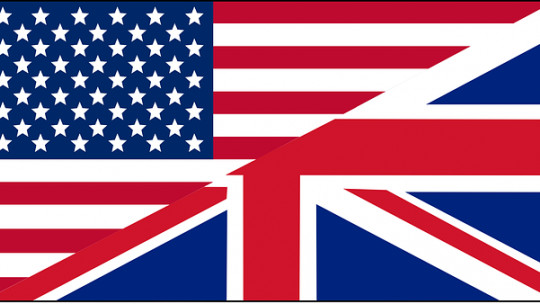France It is a Central European country that is the founder of the current European community and whose origins take us back to ancient Gaul and the ancient people of the Franks, from whom it derives its name.
Due to its geographical location, France has been a meeting point for numerous different peoples over time, accumulating the cultural and material wealth that they possessed. In contemporary times, France is considered one of the most advanced countries in Europe, and shines for its gastronomic culture and tourist attractions.
French proverbs (and their translation)
Proverbs are a source of wisdom that the French have known how to use since ancient times that is why we have made this selection of the 68 best French Proverbs that we should all know and that perhaps you did not know.
1. Autre temps, autres mœurs.
Other times, other ways.
2. Mettre de l’eau dans son vin
Put water in your wine.
3. Who felt morveux, se mouche.
He who feels snotty, blows his nose.
4. The price is oublié, the quality remains.
The price is forgotten, the quality remains.
5. Être eat a coq en pâté.
Being like a rooster in pâté.
6. Ce n’est pas la vache qui crie le plus fort qui donne le plus de lait.
It is not the cow that screams the loudest that gives the most milk.
7. Jeter l’argent par les fenêtres.
Throw money out the windows.
8. L’eau va à la rivière.
The water goes to the river
9. On ne peut pas avoir le lard et le cochon.
You can’t have the bacon and the pork.
10. The cordonniers are all the more bad ones.
Shoemakers always wear worn-out shoes.
11. Il n’y a pas de plume tombée sans oiseau plumé.
There is no fallen feather without a plucked bird.
12. Un sou est un sou.
A hard one is a hard one.
13. On ne connaît pas le vin à l’étiquette.
You don’t know the wine by the label.
14. A merles soûl, cerises amères.
When fat merlo the bitter cherries.
15. Chien qui aboie ne mord pas.
The dog that barks does not bite.
16. Maison ouverte, rend voleur l’homme honnête.
In an open house, the righteous sin.

17. Sers selon le goût du maître, ou bien ne sers point du tout.
Go to your master at ease, if you want to be a servant.
18. L’homme sage tente tout avant de recourir aux arms.
The prudent must try everything before taking weapons.
19. On ne measure pas l’huile sans avoir les mains grasses.
He who measures oil, anoints his hands.
20. A bon marché, clientele triplee.
Go cheap, and you’ll sell for four.
21. The plaisanteries fondées sont les pires.
True mockery is bad.
22. ne crevé, la queue au râtelier.
To the dead donkey, the barley to the tail.
23. Pour les flatteurs, il n’est riche sot, ni pauvre sage.
For flatterers, there is no rich fool, nor poor discreet.
24. Le sot en sait plus chez lui, que l’habile homme chez autrui.
The fool knows more in his own house than the sane in someone else’s.
25. A force of coiffeurs, the fiancée devient chauve.
Many flatterers lose their girlfriends.
26. The woman and the sardine, the most petites are the most fines.
The woman and the sardine, the smaller the finer.
27. Bœuf dételé peut se lécher.
The loose ox licks well.
28. Chercher midi à quatorze heures.
(Search one hour in another)
29. Appeler a chat, a chat.
Call the cat, cat.
30. Avoir une faim de loup.
Have a wolf hunger.
31. Aide-toi, le Ciel t’aidera.
The French equivalent of “To God begging and with the gavel giving.”
32. Paris ne s’est pas fait en un jour.
Paris did not fall in an hour.
33. Ne pas avoir voix au chapitre.
Not having a candle at this funeral.
34. L’amour fait beaucoup, mais l’argent fait tout.
Love does a lot, but money does everything.
35. Maison ouverte, rend voleur l’homme honnête.
In an open house, the righteous sin.
36. Qui sème des chardons, recueille des piqûres.
He who sows thistles, gathers thorns.
37. Bon avocat, mauvais voisin.
Good lawyer, bad neighbor.
38. Amour d’enfant, de l’eau dans un panier.
Child’s love, water in a basket.
39. Point d’absent qui ait raison, ni de présent qui ait tort.
Neither absent without guilt, nor present without apology.
40. En guerre, en chasse et en amour, pour un plaisir, mille douleurs.
War, hunting, and love, for one pleasure, a thousand pains.
41. Fri sans amis, mort sans temoins.
Life without a friend, death without a witness.
42. Bien des gens menacés, ont leurs membres entiers.
More are threatened than injured.
43. Fais ce que veut ton maître, puis assied-toi à sa table.
Do what your master tells you, and sit with him at the table.
44. Neither pour rire, nor pour de bon, ne partage les fruits avec ton patron.
Neither in mockery nor in truth, do not split pears with your master.
45. Dis-moi qui tu frequentes, je te dirai qui tu es.
Tell me who your friends are and I’ll tell you who you are.

46. Pleure s’il le faut pour apprendre, later you laugh.
Learn by crying, you will laugh winning.
47. Point de sentier, sans quelques encombres.
There is no shortcut without work.
48. Who ne veut se risquer, ne traversera pas la mer.
He who does not venture, does not cross the sea.
49. Le jeu doit value the chandelier.
The lamp burns in vain.
50. De mauvais semis, jamais bons melons.
Bad eggplant, never good pumpkin.
51. La plaisanterie doit s’arrêter au moment où le le le lend le mieux.
To ridicule, leave it when it pleases the most.
52. A young knight, old cavalier.
On a new horse, old knight.
53. Quant à son oeil ce n’était pas grand chose et pourtant il le portait dans sa main.
The eye thing was nothing, and he carried it in his hand.
54. Jamais absent n’est found innocent.
The absent were never found righteous.
55. L’affection nuit à la raison.
Reason blind hobby.
56. Le diable s’occupe de nous, et nous des autres.
We for what belongs to others, and the devil for what is ours.
57. Bien aime, qui n’oublie pas.
Well love who never forgets.
58. Santé et gaieté, donnent la beauté.
Health and joy, beauty breeding.
59. Être ami de tout le monde ou de personne, c’est pareil.
Friendship of all, and of none, everything is one.
60. Fréquente les bons, et tu deviendras bon.
Join the good ones, and you will be one of them.
61. Jeu de mains, jeu de vilains.
Taunting of hands, taunting of villains.
62. Bouche muette, Dieu ne l’entend pas.
Mouth that does not speak, God does not hear it.
63. Donne au reconnaissant par delà sa demande.
To the grateful, more than requested.
64. Ce n’est pas la trempe des armes, mais celle du cœur qui donne la victoire.
Courage wins war, which is not a good weapon.
65. Who ne peut marcher, qu’il coure!
He who cannot walk, let him run.
66. Arrange-toi d’un mauvais maître, de peur d’en trouver un plus piètre.
Bad master you must keep, for fear of getting worse.
67. Je ne tiens pas à un ami qui mord du bec tout en couvrant de l’aile.
I deny the friend that covers with its wings, and bites with its beak.
68. Les amours des chats commencement par se montrer les dents.
The cat loves, quarreling, they enter.









